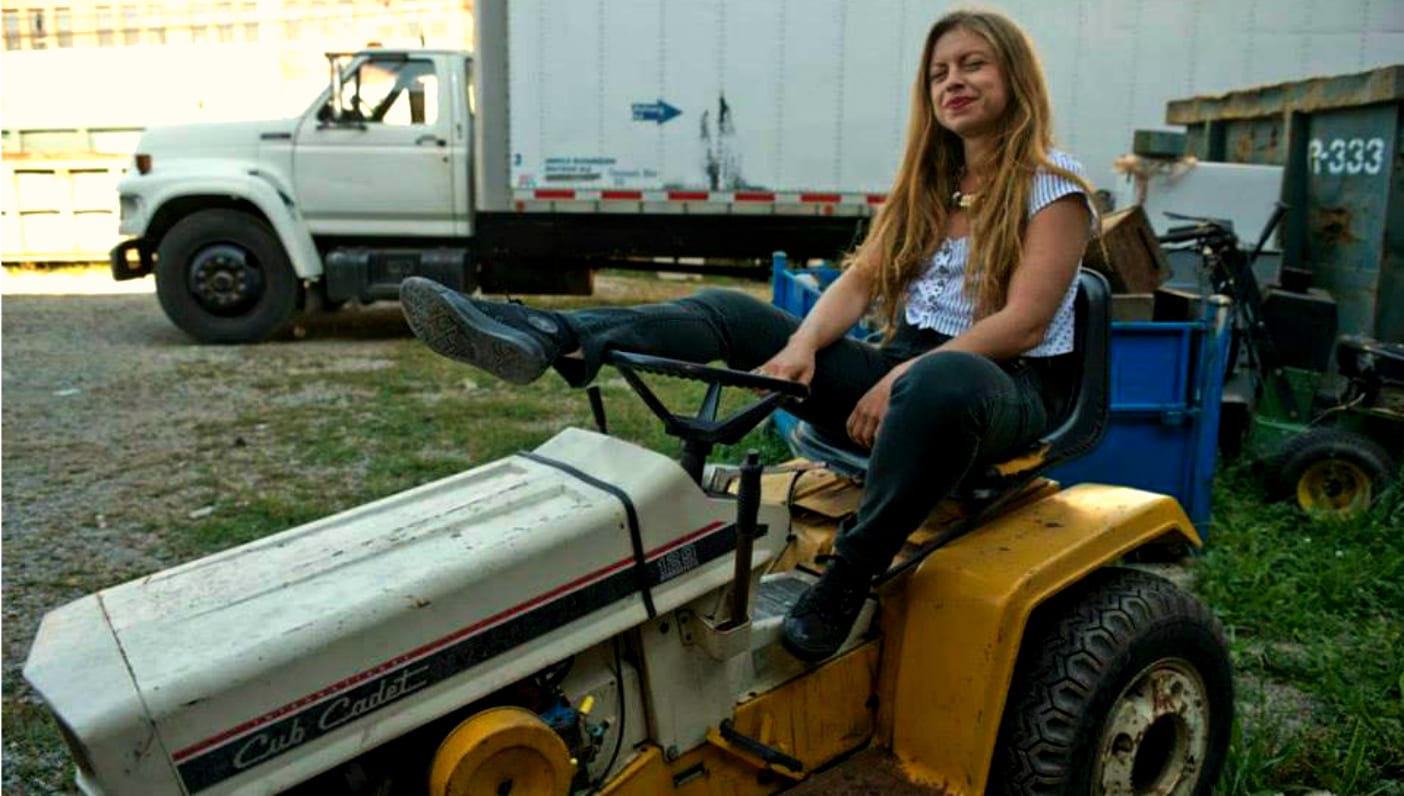
This is part of a Q&A series featuring women who have found success on their own terms in the mindful age. For more stories like this, click here.
As a child, Anna Starostinetskaya emigrated from the former U.S.S.R. and followed her family’s detailed directions for achieving the traditional American Dream. As an adult, she summoned the courage to crumple the map, leave behind a steady life in L.A., and move to New York to launch a writing career and Off Track Planet, a savvy lifestyle media and magazine site for global backpackers. Today, Anna says she arrived at her definition (and destination!) of success “through being broke, hungry, freezing, and lost between subway lines, but always waking up with a feeling of being true to myself.”
How do you define success?
Waking up and knowing that what you’re doing that day is a function of choice and not consequence.
How did you define success five years ago?
Five years ago was when Off Track Planet was just a wee baby, and my business partner Freddie Pikovsky and I were just getting the company off the ground, I wanted to see it grow. At that time, success meant that our message—that travel doesn’t have to be expensive or be put off until retirement—reached people, influencing them to make positive change around the world. A man sent us an email from Afghanistan in which he thanked us for getting him through the hardship of war. That there was success.
Do you feel successful now? Does this vary day-to-day?
The idea of “successful” puts an end date on success. So no, I don’t feel successful. I think I am in the midst of succeeding and am OK with never being “successful.”
What does a “fulfilled” life look like to you?
One where I feel like I have purpose; where I feel like my self-expression resonates with other people and influences positive change. Ideally, I hope I can convince people to travel to a place they’ve never been, interact with locals on a personal level, learn that our human condition has many overlapping universal qualities around the world, bring that knowledge back to the States and apply it in some way. Facilitating this through my writing is my idea of fulfillment.
What are you most proud of?
I am most proud of my discovery of how adaptable I am. When I first moved to New York with my whole “I’m going to be a writer” cliché, I had no idea what was coming my way. But people are capable of just figuring stuff out. I really value being uncomfortable.
Also, I set a goal when I was 26 that I would write a book by age 30. I’m 32 and just finished my fourth book. I don’t usually gloat but I am proud of that.
What were the challenges you faced and how did you surmount them?
The obvious challenge you face as a startup is capital. Freddie and I ate rice and lint, and we made it work. Luckily, the backpacker community is a passionate one. While we weren’t able to pay much for content, our early writers shared our passion and helped us drive the company forward.
What was the most difficult moment for you?
The first time we looked failure in the eye was the hardest. When it seemed like our company was just going to collapse and we couldn’t support it really felt like letting go of Leo’s hand after the Titanic started to go under. But then we stared failure in the eye another 10–15 times and it was fine.
What do you consider your #ActuallySheCan moment?
My #ActuallySheCan moment happened every time I walked into an investor meeting. Investors are largely older males and as a woman, I always felt like I had something more to prove. You have to establish your intelligence from the get go or fall into the “she’s just along for the ride” bucket… But being too aggressive [unfairly or not] puts you in the jerk bucket quick. It’s a fine line to walk.
Who are your role models? Why do you look up to them?
My biggest idol is Lucille Ball because she was the funniest broad ever. She broke some pretty big barriers for women on television and her comedy somehow has withstood the test of time. I look up to her because I too strive to use humor to affect change.
What is the best advice you have received that you wish to pass on?
One of the early things you discover in the startup atmosphere is the idea of “fail fast.” Letting the idea of failure linger is the biggest startup killer there is.
Written for ActuallySheCan by Julie Balter
In partnership with ActuallySheCan.com
ActuallySheCan is for women who are strong, smart and driven. A movement for those who aren’t afraid to toss out what they don’t want to make room for what they do. Because we believe focusing on the positive things in your life means less drama, more karma.
Join the #ActuallySheCan movement. To register, click here »
© 2016 Allergan. All rights reserved
Allergan® and its design are trademarks of Allergan, Inc.
ActuallySheCan(SM) and #ActuallySheCan(SM) are service marks of Actavis, Inc., an Allergan affiliate.

